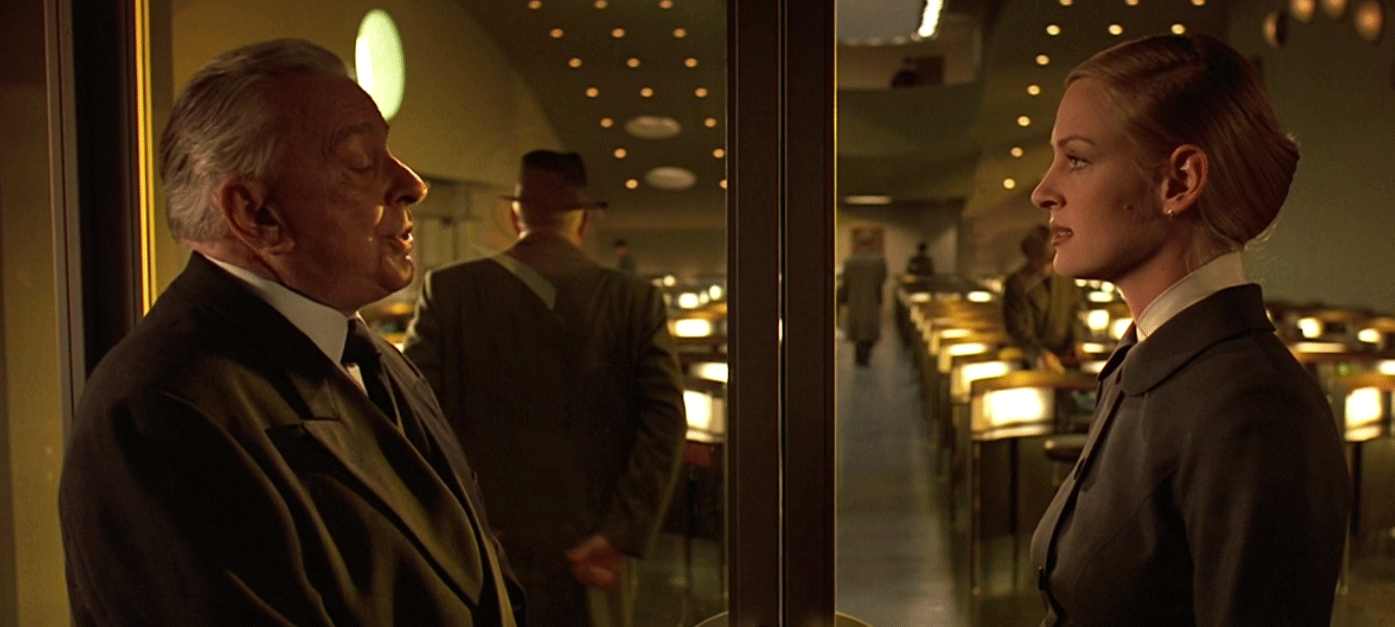Gore Vidal Was Everywhere and Now He Is Nowhere
The literary afterlife of "...an Augustan figure who believed himself to be the last of a breed, and he was probably right."
I recently finished Gore Vidal: Empire of Self by Jay Parini, a biography of the used-to-be-more-famous writer, cultural commentator, actor, and all-around public intellectual Eugene Luther Gore Vidal, the man with two first names and two last names.
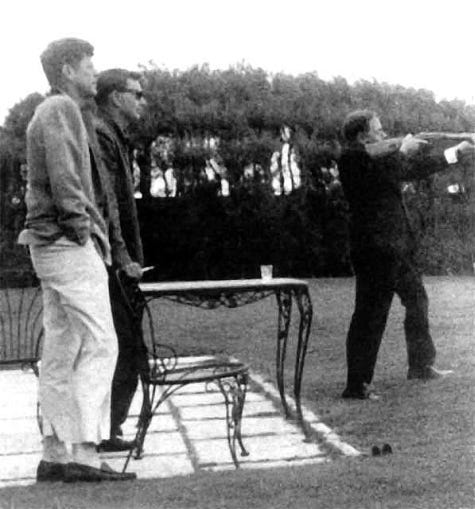
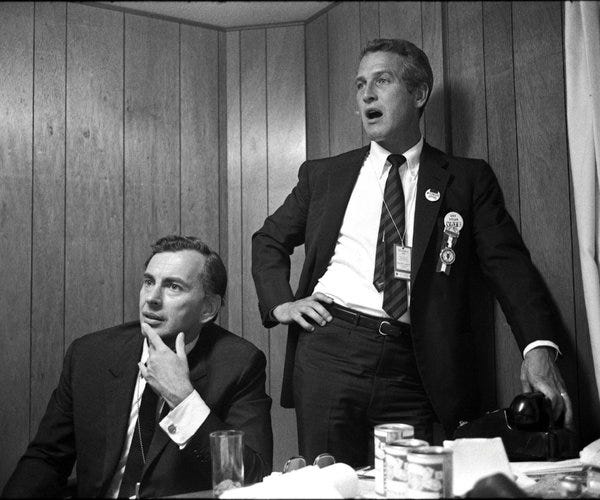
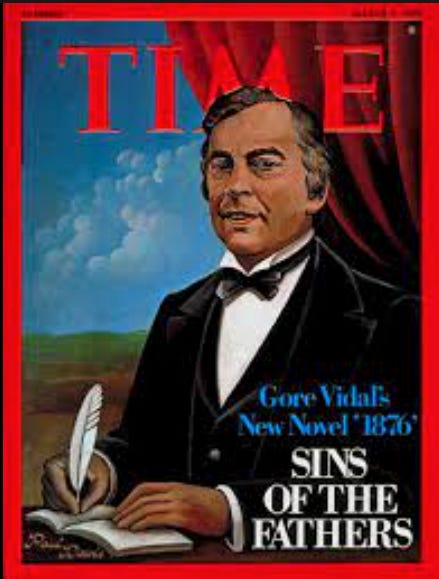
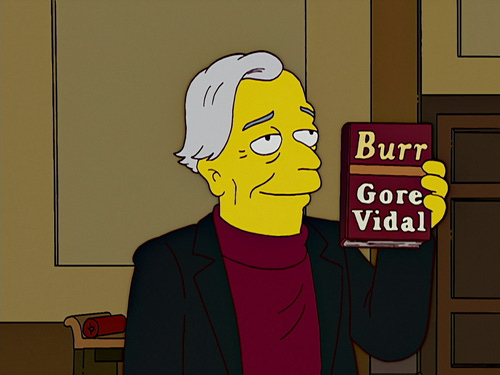
As the biography illustrates, Vidal is an interesting case study in artistic fame. Scarcely a chapter goes by without some serious name-dropping:
In Washington for FDR’s inauguration, an 8-year-old Vidal watched the inaugural parade from the window of the famous Willard Hotel. He has an interesting anecdote about this: apparently the loudspeakers were not synched correctly, causing FDR’s speech to echo around Washington.
Visiting Los Angeles as an army cadet, 17-year old Vidal met Orson Welles (only two years after Citizen Kane), Rita Hayworth, Frank Sinatra, Clark Gable, and other future film stars.
When Japan surrendered on August 14, 1945, Vidal joined the spontaneous celebrations in Times Square, which were made eternally famous by a photograph of a sailor kissing a nurse.
Throughout the 50s and 60s, he was periodically with the Kennedys, even campaigning (for senator) alongside JFK (for president) – at least until he had a falling out with Bobby Kennedy and was unofficially banished from the family’s activities.
In Rome in the early 70s, he was with Federico Fellini, even managing to snag a 60-second monologue in Roma (1965).
He was a regular guest on television, especially on talk shows like Charlie Rose, Dick Cavett, Johnny Carson, and David Letterman.
In Oxford, he dined with Isaiah Berlin, one of the most respected philosophers of the time.
In 2006, he voiced himself in a Simpson episode, “true fame,” as Parini calls it in the biography.
Despite his lifelong proximity to fame, I doubt that most people today under the age of 40 have even heard of Gore Vidal. He wrote dozens of plays, essays, and books and appeared on television hundreds, maybe even thousands, of times, as well as acted in 7 feature films. Given his immense output, it’s surprising how little of it is remembered today.
If there is any piece of media that younger people know him from, it might be 1997’s Gattaca, which is – or used to be – an assigned movie in high school biology classes.
In Gattaca (1997), Vidal starred as the unapologetically elitist director of a space exploration corporation– an extremely well-cast role – alongside Uma Thurman, Jude Law, and Ethan Hawke.
Why Have We Forgotten Gore Vidal?
After having read his biography, a handful of his books, and listened to dozens of hours of interviews, I have a few ideas as to why Vidal has faded into relative literary obscurity.
The main reason, I think, is because he seemed more interested in playing a character – Gore Vidal, writer, bon vivant, and cultural commentator – than in creating lasting cultural works. The books, the essays, the storied American political heritage, the houses in Italy, the televised political debates – all seem like mere props in service of his chosen role.
“[Vidal] liked being at the center of the dream factory and playing his favorite role: Gore Vidal.”
Empire of Self, Jay Parini
Reading Empire of Self, one gets the impression that Vidal’s primary occupation was socialite and drinker, not writer, even though he was exceptionally hardworking and prolific. Indeed, even when Vidal is mentioned today, it’s rarely for his literary work, but rather for his personality or for his political speeches and debates.
The relative unpopularity of his work may also be because it’s somewhat difficult to categorize in toto. One minute, he’s writing erudite essays and novels about classical political figures in American, Greek, or Roman history. The next, he’s switched to campy novels on gender-bending Hollywood actresses or time-travelers that battle a hacker trying to erase Christianity.
In a publishing world that demands an author to have a singular style or “brand”, Vidal was too unpredictable to fit into any labels more specific than “social critic” or “writer.”
Nor was everyone happy about Vidal’s outspoken criticism of pretty much everyone, especially people that otherwise would have been on his side. Throughout his life, he had feuds with Truman Capote, Robert F. Kennedy, Norman Mailer, William F. Buckley, and Christopher Hitchens, to name only a few.
The United States was founded by the brightest people in the country –and we haven’t seen them since.
Gore Vidal
A more pessimistic – but probably realistic – reason for Vidal’s lack of widespread recognition may simply be because the public is no longer interested in what men-of-letters like Vidal think about literature or politics. It’s hard to imagine such a figure having an audience today in a world of memes, hot wings podcasts, and TikTok clips. Then again, Vidal was exceptionally good at creating short witticisms, so maybe he would have figured it out and gone viral.
Thankfully, Vidal seems to be undergoing something of a revival. A 2015 film dramatized his debate with Buckley and was adapted for the stage in 2021. The debate was even mentioned recently on Joe Rogan’s podcast, of all places. A biopic spearheaded by Kevin Spacey was also in production circa 2017, but seems to have been canceled permanently, for obvious reasons.
Where to Start with Vidal
If you are entirely unfamiliar with Vidal, I don’t actually recommend starting with his books, although Lincoln and Burr are the usual critics’ picks and Julian is an interesting historical “what-if.” His essays are also excellent too, although sometimes they get bogged down in then-relevant contemporary politics.
Instead, I think you can get a better sense of Vidal by watching one of his many interviews:
This series of out-takes from the documentary The Great Depression is a good starting point. Vidal has some incredible behind-the-scenes stories about his grandfather (a famous senator) and FDR.
Vidal was a guest on Charlie Rose’s show numerous times over the years and Gore Vidal: An Appreciation by Charlie Rose is a nice overview of Vidal’s life, along with some interview clips.
Dick Cavett was a great interviewer and this hour-long episode with Vidal is entertaining.

